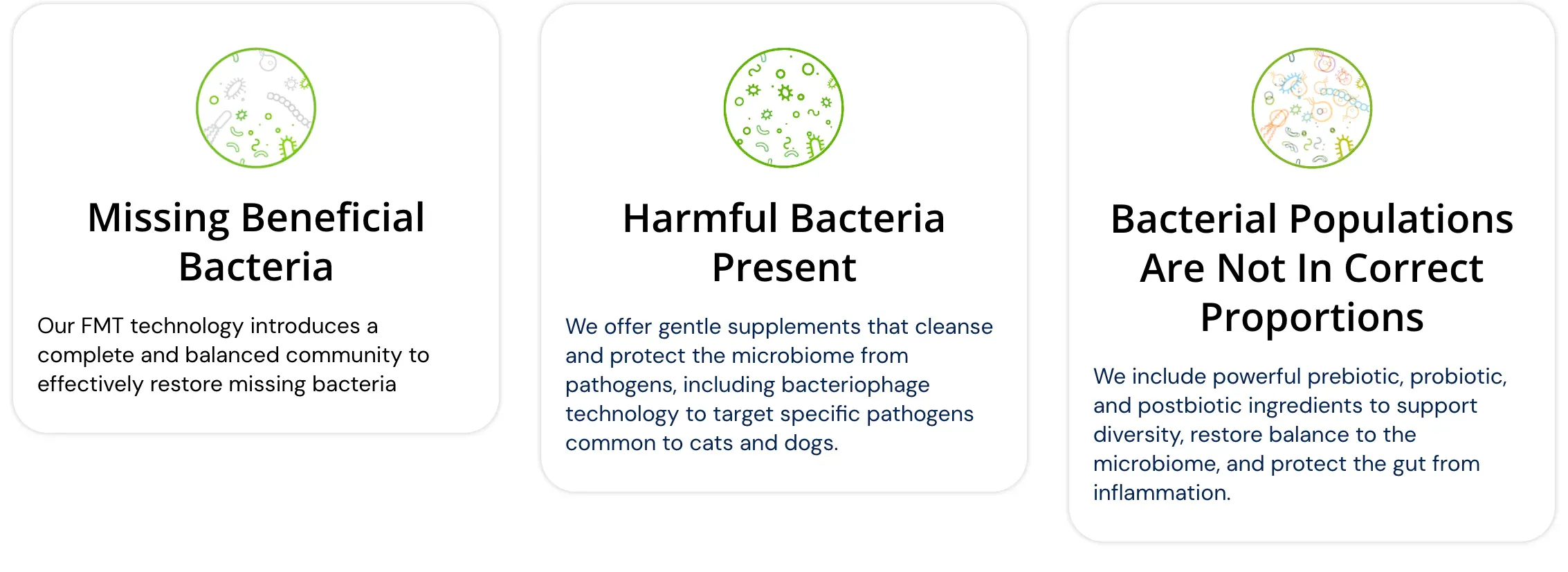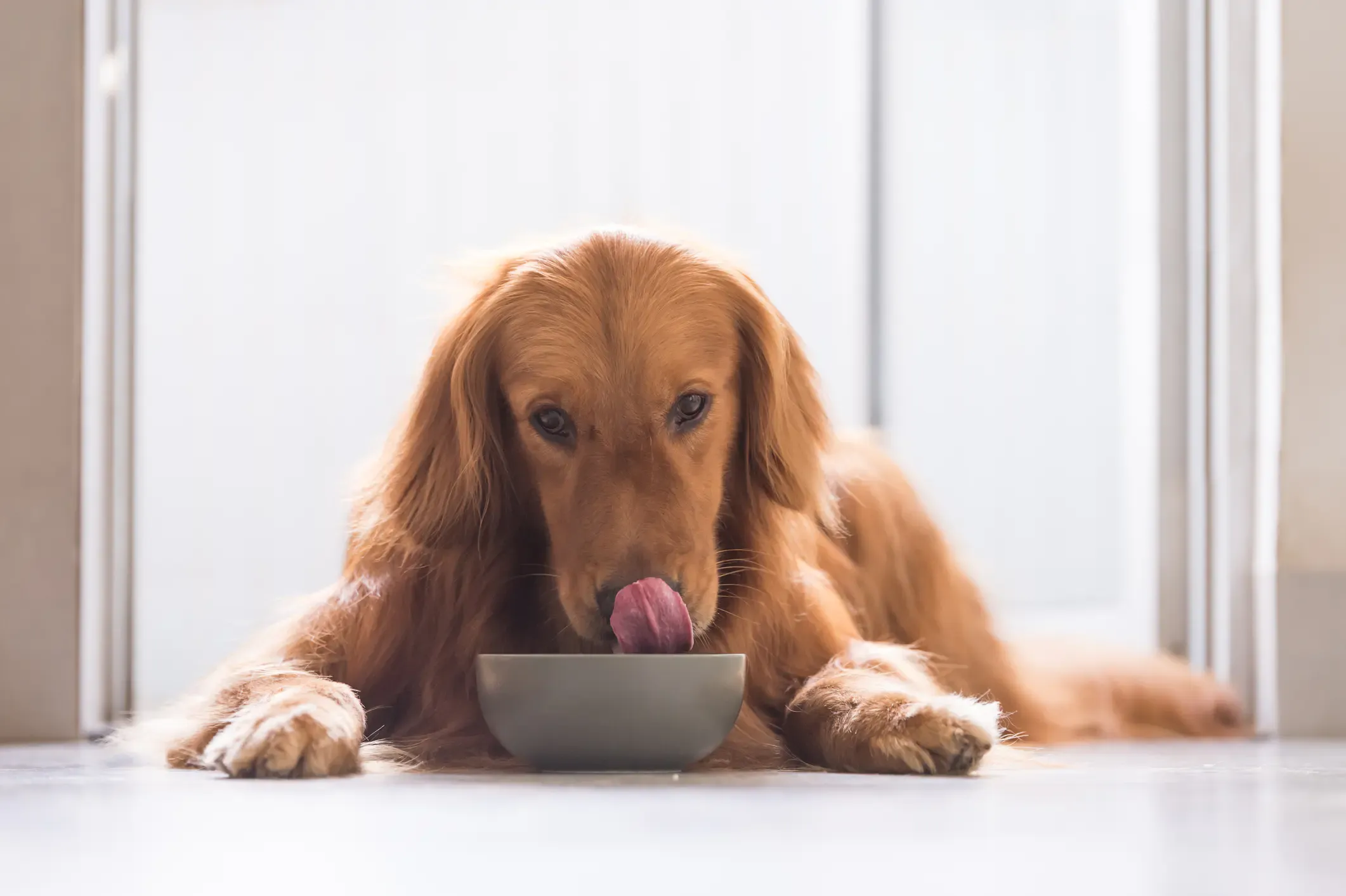Your dog’s gut health is the foundation of their overall well-being. The gastrointestinal tract, or GI tract, houses a complex ecosystem of bacteria, viruses, fungi, and other microorganisms known as the gut microbiome. A balanced and diverse microbiome supports nutrient absorption, immune function, and even mental health in dogs. When it’s disrupted—often by commercial diets, antibiotics, or indoor lifestyles—issues like diarrhea, itchy skin, vomiting, constipation, and chronic inflammation can arise.
Modern dogs face rising microbiome-related problems, similar to trends in humans. Fortunately, restoring dog gut health naturally is straightforward through four key strategies: Test, Add, Remove, and Rebalance. These methods prioritize natural interventions over medications with potential side effects. For more on supportive care routines, check out our guide on rover dog care.
 Dog Gut Health: The 4 Ways to Restore It Naturally
Dog Gut Health: The 4 Ways to Restore It Naturally
1. Test Your Dog’s Gut Microbiome
Symptoms like chronic diarrhea, bad breath, or skin allergies often signal underlying gut microbiome imbalances. Essential bacteria may be missing or overgrown, impairing digestion and immunity. Microbiome testing analyzes a stool sample to reveal the exact composition, offering a clear picture of your dog’s gut health.
Testing uses DNA sequencing on poop samples, identifying bacterial types and proportions. Compare results to healthy dogs of similar age and breed for personalized insights. Factors like aging, illness, or antibiotics can shift the microbiome into three common states: low diversity, overgrowth of harmful bacteria, or imbalance in proportions.
Here’s a summary of microbiome conditions and responses:
| Condition | Description | Recommended Action |
|---|---|---|
| Low Diversity | Missing beneficial bacteria types | Add good bacteria via diet/supplements |
| Overgrowth | Excess harmful bacteria (e.g., E. coli) | Remove via competition/phages/antibiotics |
| Imbalance | Uneven populations despite diversity | Rebalance with diet/FMT |

Veterinarians recommend testing before and after antibiotics, as these drugs can cause long-term dysbiosis. Studies, such as those in the International Journal of Biological Sciences, highlight breed-specific healthy baselines.

2. Add Beneficial Bacteria
Dogs with low microbiome diversity—post-antibiotics or infections like Salmonella—benefit from introducing good bacteria. Target the small or large intestine based on symptoms.
Optimize Diet for Diversity
Feed a high-protein, low-carb diet to nurture beneficial strains. Foods that are good for your dog, like fresh meats and fermented options, promote growth of anti-inflammatory bacteria. Avoid carb-heavy kibble, which favors pathogens. Research from Phys.org shows high-protein diets shift microbiomes toward healthy weight loss in overweight dogs.
Add prebiotics (e.g., chicory root) and probiotics from natural sources like kefir or yogurt. Pumpkins and sweet potatoes provide fiber to feed good bacteria.
Environmental Exposure
Nature is a microbiome booster. Soil, plants, and fresh air introduce diverse microbes. Daily walks in parks expose dogs to beneficial strains. Dogs share skin bacteria with owners and playmates, per eLife studies. Even coprophagia (poop-eating) can transfer helpful flora, though monitor for parasites like roundworms—see can humans get round worm from dogs.

Open windows or backyard time enhances diversity. One study linked outdoor access to stronger immunity.

3. Remove Harmful Bacteria
Pathogenic overgrowths, like E. coli (found in 1 in 3 dogs), require targeted removal without wiping out the whole microbiome.
Use Competition
Introduce competitors via fecal microbiota transplantation (FMT). Healthy donor stool reseeds beneficial bacteria that outcompete pathogens. Effective in dogs, per Animals journal, FMT reduces C. diff-like issues.
Targeted Therapies
Phages—”bacteria eaters”—selectively kill bad strains. Safe and antibiotic-alternative, per NCBI reviews on antimicrobial resistance. For E. coli, phage supplements work alongside prebiotics.
Antibiotics may be necessary for infections but deplete good bacteria. Support with “Add” strategies and retest post-treatment, as IVC Journal notes long-term risks.
Always consult vets; combine with best frozen raw food for dogs for recovery nutrition.

4. Rebalance the Microbiome
Even diverse microbiomes can have uneven populations. Diet drives balance.
High-Protein, Fiber-Rich Nutrition
Carnivorous dogs thrive on >50% protein (dry matter basis). Use carb calculators to check kibble. Grain-free isn’t always low-carb. Fiber from veggies speeds transit and feeds good bacteria.
Address allergies: Switch proteins if bloating persists. FDA links some diets to heart issues—vet approval essential.
Advanced FMT
Oral FMT capsules restore full ecosystems, outperforming probiotics (Genome Medicine). Easier than enemas.
Explore natural treats like is dried fish skin good for dogs, rich in omega-3s for gut lining.

Final Thoughts on Dog Gut Health
Restoring dog gut health via Test, Add, Remove, and Rebalance tackles root causes of digestive woes, boosting immunity and vitality. Start with testing for tailored advice, then tweak diet and lifestyle. Consult your vet for persistent issues—early action prevents IBD or obesity.
Implement one change today: more protein or outdoor time. Your dog will thank you with better energy and fewer vet visits.
References
- International Journal of Biological Sciences: Breed-specific microbiomes (ijbs.com/v18p5086.htm)
- Phys.org: High-protein diets and dog microbiomes (phys.org/news/2017-01-dog-diet-gut-microbiome.html)
- WHO: Antimicrobial resistance facts
- FDA: Diet-linked DCM investigations
- AnimalBiome/DoggyBiome studies on FMT and testing
